
Does An Octopus Have A Soul? This Author Thinks So
Sy Montgomery also says that octopuses can express compassion and have erotic sex.
For most of us, the idea of having our hands stroked by a rubbery arm covered in suckers is not that appealing. But for Sy Montgomery, author of Soul Of An Octopus: A Surprising Exploration Into The Wonder of Consciousness, octopuses are a source of endless fascination and wonder.
Talking from her home in Hancock, New Hampshire, she explains how octopuses are good at multi-tasking; why the missionary position doesn’t work for mating octopuses; and why she believes all animals, including octopuses, have souls. (Watch: Is This Picture-Taking Octopus as Smart as She Seems?)
What is it about octopuses that intrigues you?
Here is a baggy, boneless body that can pour itself into the tiniest spaces, has venom like a snake, ink like an old fashioned pen, a beak like a parrot, can taste with their skin, and can change color and shape. These are amazing powers. They’re so different from us, but what held my attention and totally mesmerized me was, that despite our differences, it’s possible to have a meeting of the minds with someone like this. It’s possible to have an octopus care about you, to choose your company. That is a real honor. (Read: Octopuses are Playful, Curious, and Smart.)
Each of the octopuses you write about seem to have had individual personalities—tell us a little about Octavia and how she was different from Kali.
Octavia was caught wild. She was older than Kali, probably more mature than any of the octopuses that lived at New England Aquarium. If you’re living wild in the open ocean for a long time, you have a chance to learn a great deal. One of the things that she learned par excellence, was camouflage. That involves millions of muscles and nerves and decisions. Some of it may be instinctual but it’s not all instinctual. Talk about multi-tasking! She was very wary and not eager to reach out to us and touch us at first. But, when she finally did, we became very, very good friends. It was a friendship that lasted… to the end of her life.
Kali was maybe nine months-old, or younger. She was very playful, very funny, had a great sense of humor, loved to explore, loved to engage people! She wasn’t wary at all and she was just a blast to be with! She managed to seduce us all. Everyone loved her, instantly. That’s quite a feat for somebody who’s covered in slime and lives in very cold, 47 degree salt water. But you couldn’t resist petting Kali! (Read: Social Octopus Species Shatters Beliefs About Ocean Dwellers.)
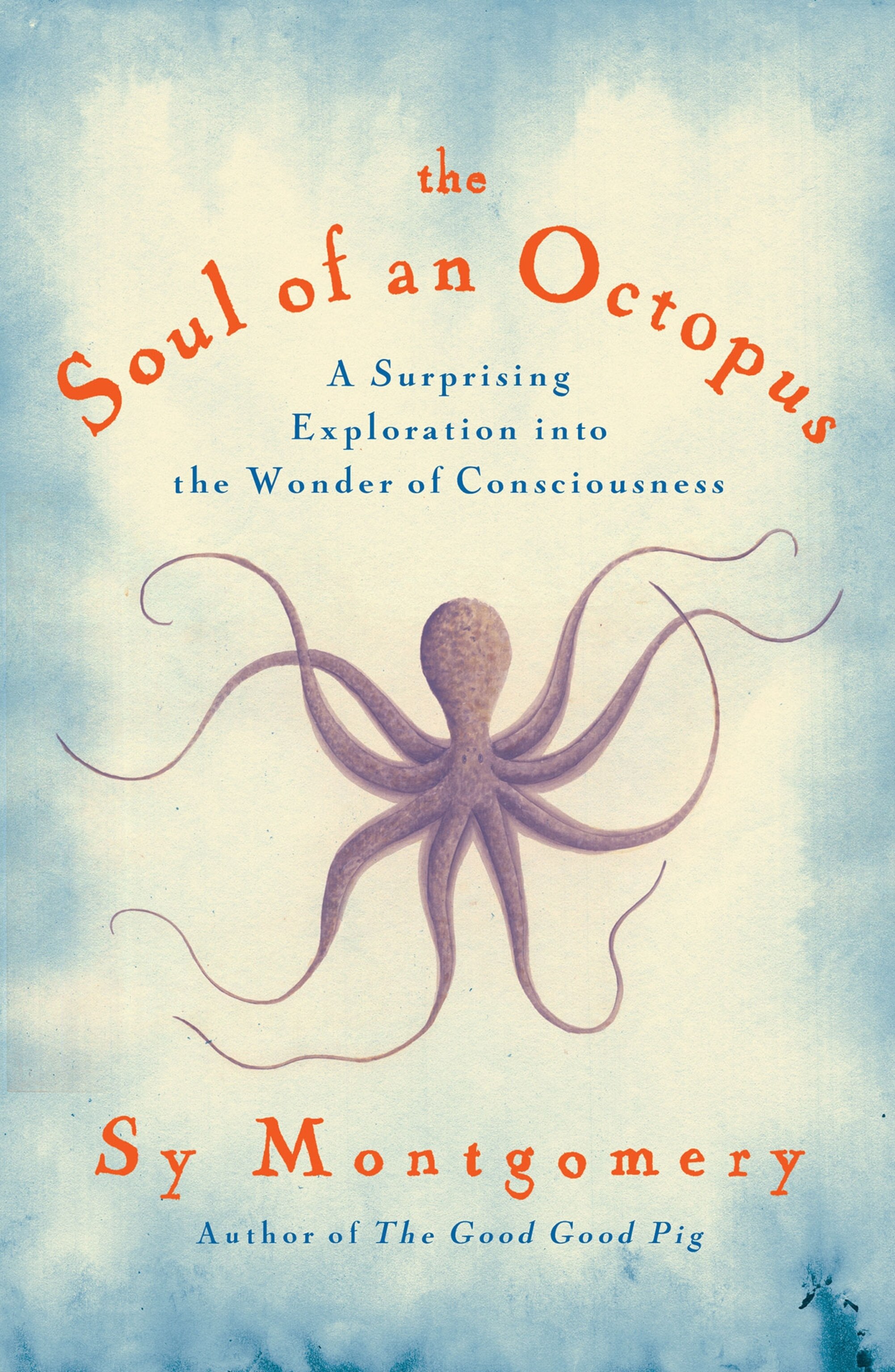
Aristotle famously wrote, “The octopus is a stupid creature.” You discovered the opposite, didn’t you?
Oh, my gosh, they are so smart! We have been outwitted many times, but one of the most dramatic outwittings was done by Octavia. There were three people petting her, and a couple of people standing around watching the interaction. That’s at least six pairs of eyes watching this octopus but when we go to get another fish out of the bucket to feed her, the bucket’s not there. Octavia had managed to steal the bucket right out from under us. And, what was she doing with it? The funny thing is, she hadn’t eaten any of the fish. She wanted to play with the bucket. I think she enjoyed stealing it out from under our noses. (Watch: Octopus Carries Coconut—But Is It Using a Tool?)
You relate humorous stories about octopuses in labs. Tell us some. Can octopuses really run?
Oh, boy, can they run! [Laughs] At the Middlebury Octopus Lab in Vermont they work with very small, pocket octopuses. The students often try to get them out of the tanks to run mazes or for experiments and these little guys will use the net like a trampoline, jump off the net on to the floor and run around like a cat! One student was chasing an octopus around, thinking, “This is insane, this can’t be happening!”
But, it totally was happening. Octopuses are also really smart about getting out of their tanks. Aquariums work really hard to make octopus-proof lids. They’ve been known to free themselves, get in an adjacent tank and eat everybody in that tank. At the Seattle Aquarium they had octopuses in a tank with sharks. They were worried about whether the octopus would be safe around the sharks. Then the sharks started turning up dead—not eaten. Killed. Clearly, the octopus was worried about the sharks, too, and preemptively killed them! They got it on video, so there is no doubt about Who Done It.
I heard one story about an octopus in a home tank, who would get out, cruise around the house, take knick-knacks and drag them back to its tank. Like a dog! They’re so smart that there are octopus enrichment handbooks so you don’t bore your octopus. I’ve seen them play with Legos, Mr. Potato Head, you name it! [Laughs]
One octopus, called Bitch, didn’t like to get caught for the maze experiment. And one scientist says mazes aren’t adequate to test them, why is that?
Because the way they think is so different from the way we think, we may not have figured out how to measure their intelligence accurately, yet. They think similarly enough to us that you can form a relationship with an octopus, but their brains are organized in a very different way than ours.
The fact that three-fifths of an octopus’ neurons are not in their brain, but in their arms, suggests that each arm has a mind of its own. All of these things make it very hard to measure the intelligence because, we only have four lobes in our brains, while octopus have 50 to 75, depending on how you count them. It’s hard to take the measure of the mind of somebody like that.
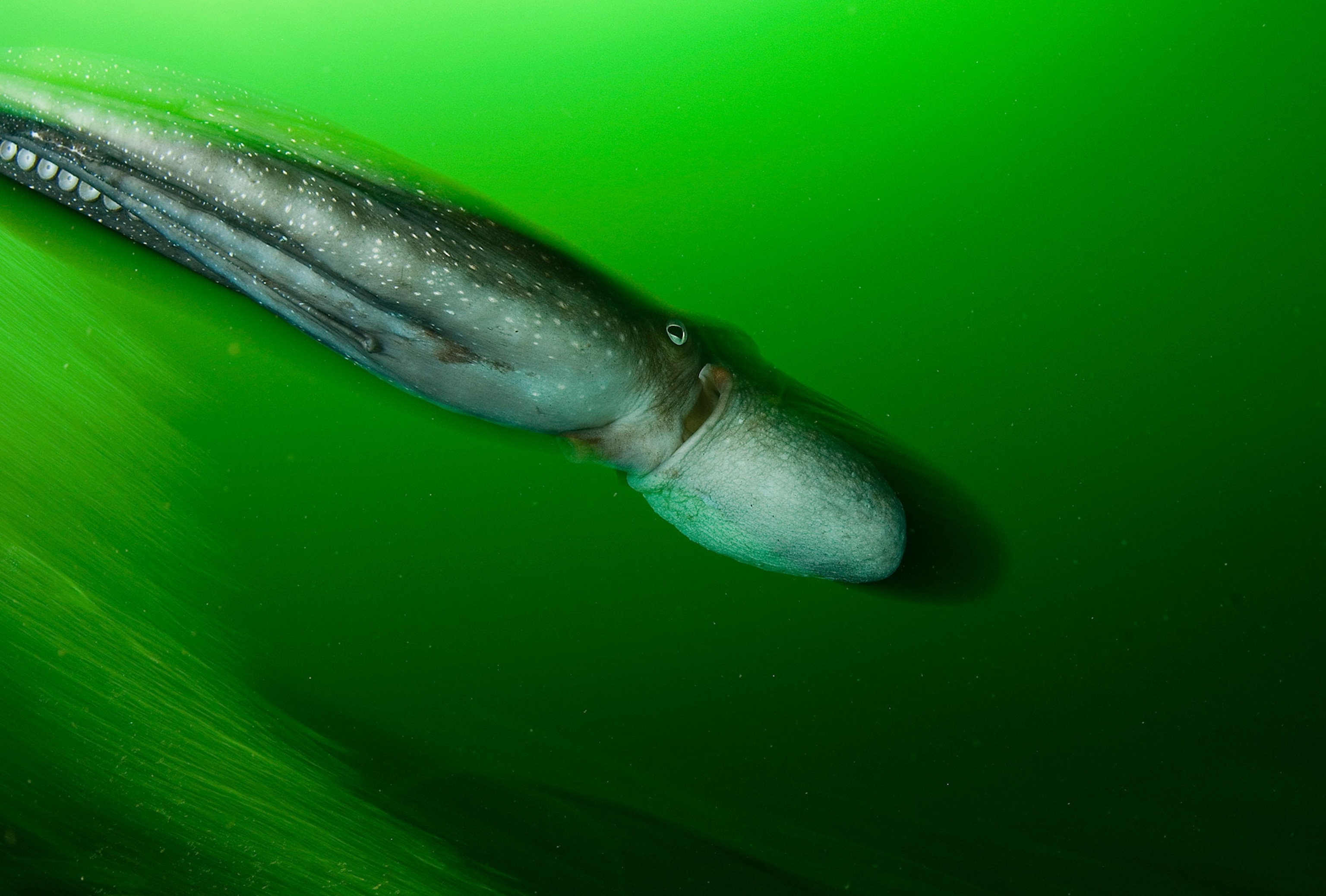
You indicate that octopuses are the ultimate multi-taskers because much of what their eight arms do is not circuited through the brain. Can you explain that for us?
I wish I could explain it! [Laughs] It’s a very happy arrangement. If your arm is severed by an eel who wants to eat you, or a shark who wants to snack on you, and your arm comes off, your arm can actually go off and do things for quite a few minutes, without having any contact with the main brain.
Imagine if you had to think consciously about what your eight arms and 1,600 suckers were doing, all the time? Octopus can fish for prey while deciding what color and pattern to turn, what shape to make their bodies, be on alert for predators and aware how far away their dens are. It has to help to be able to outsource these tasks to the neurons in your arms.
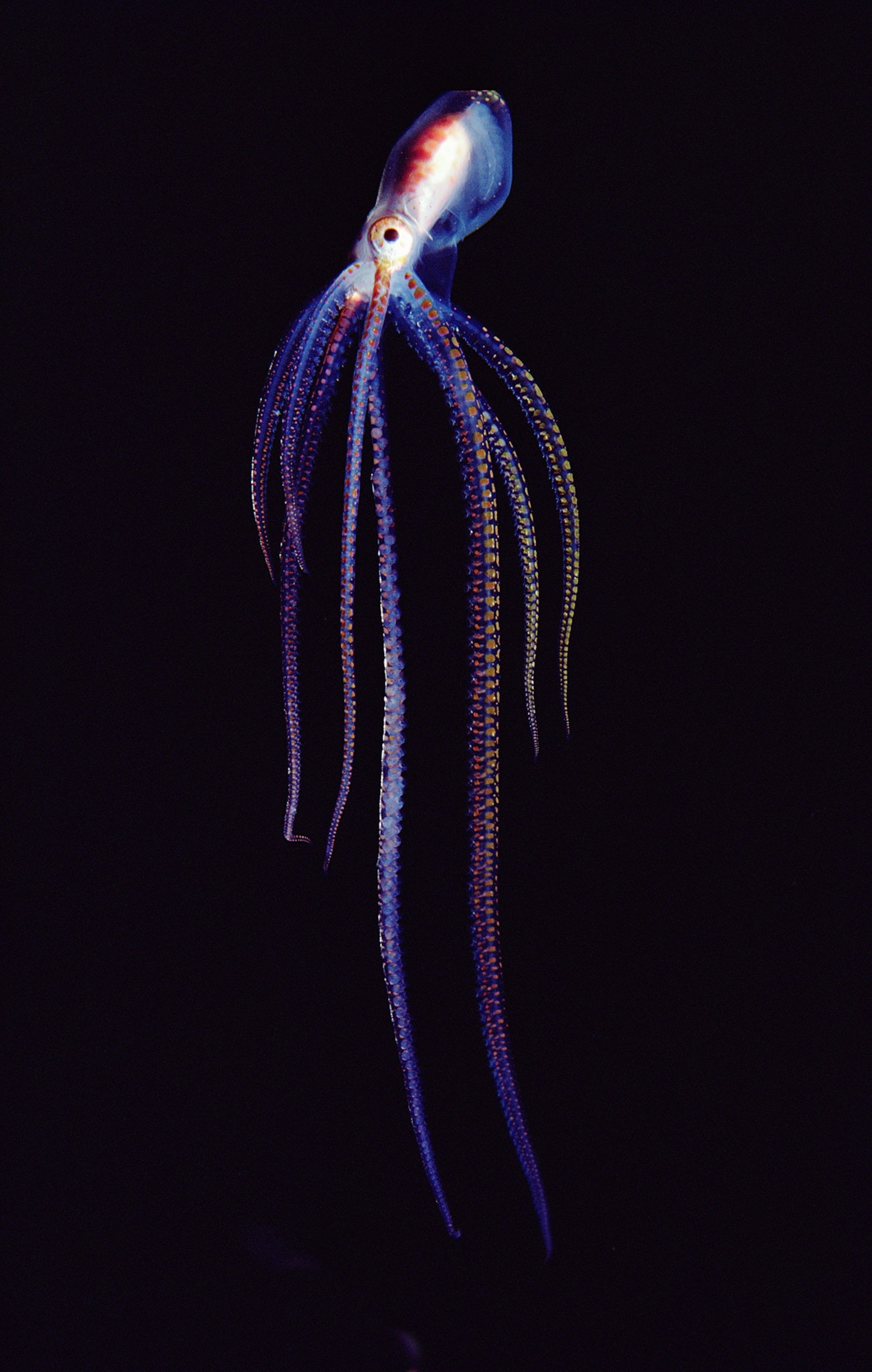
What do Jackson Pollock, fruit flies and the Levy Distribution have to do with octopuses and human behavior?
This is about free will and animals making conscious choices, even very small animals. Bjorn Brembs, a researcher at Berlin Free University, did a study of fruit flies to see if they were just reactive robots, or had flight patterns. He put them in a white featureless room, glued them to little copper hooks and traced their flight behavior.
Their flights weren’t random at all. This is where the Levy distribution comes in, which sounds like a new brand of blue jeans, but it’s a mathematical algorithm for a particular pattern. The Levy Distribution is a search pattern that is a very effective way to find food. Lots of animals use it. Interestingly enough, people say that they can see this Levy Distribution in Jackson Pollock’s paintings, as well.
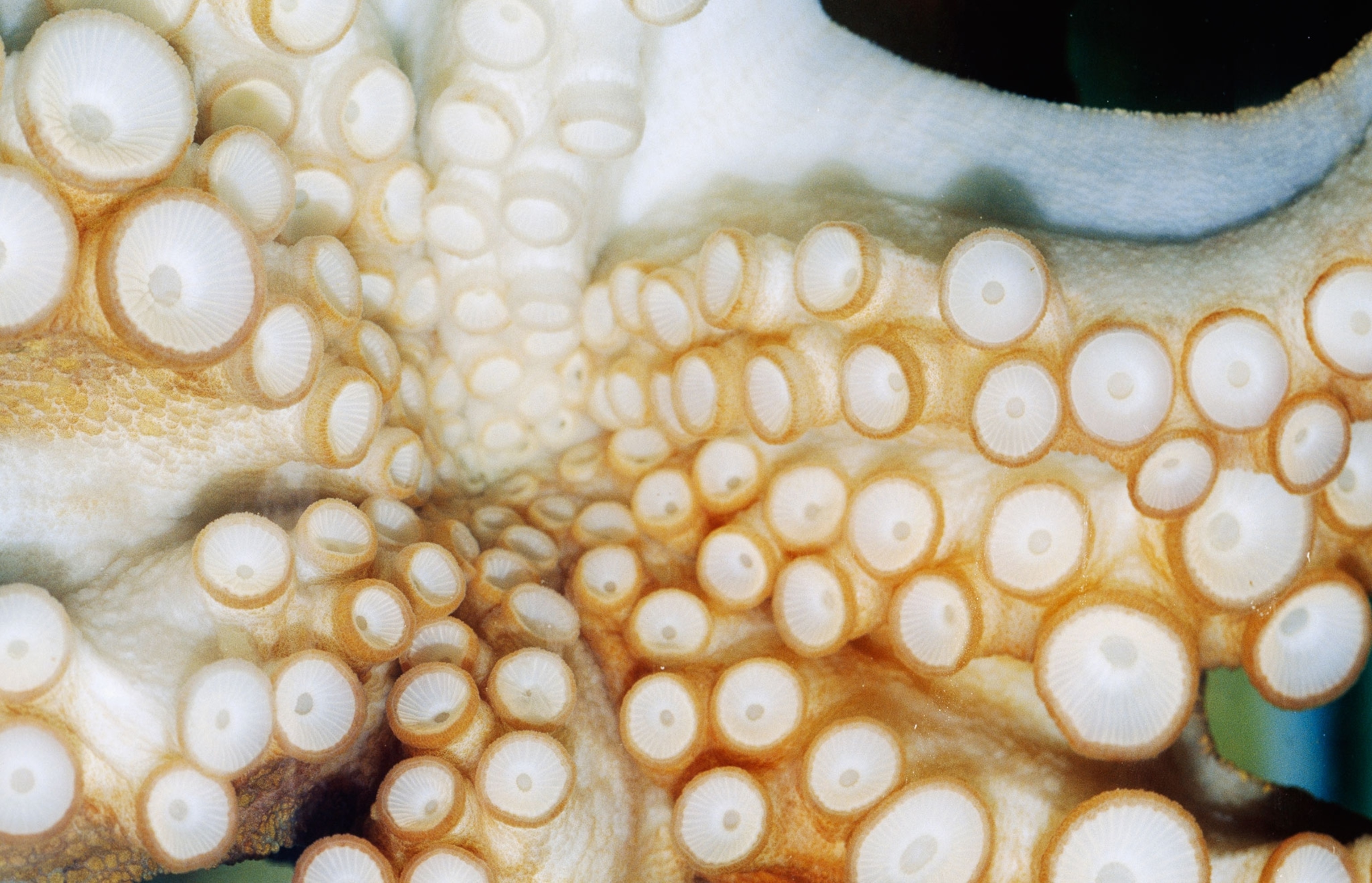
The reason that I included that is that this book is about mollusks whose minds we might overlook or dismiss, but even very tiny creatures are making conscious choices in our world. It’s not unreasonable to me to think that all living creatures love their lives and are making choices to preserve their lives, even if we just haven’t found a way to see that in them, yet. We’re surrounded by millions of interesting and unique minds. It is surprising and delightful.
One of the most moving moments in your book occurs with Octavia and Anna, after Anna’s friend commits suicide. Can you share that with us?
The book is dedicated to Anna, who was a young volunteer at the New England Aquarium when her best friend committed suicide. It’s hard being a teenager; I think it was particularly hard for Anna. She was very bright but she has a number of health problems and she had Asperger’s Syndrome, which sometimes can make you socially awkward or feel socially isolated.
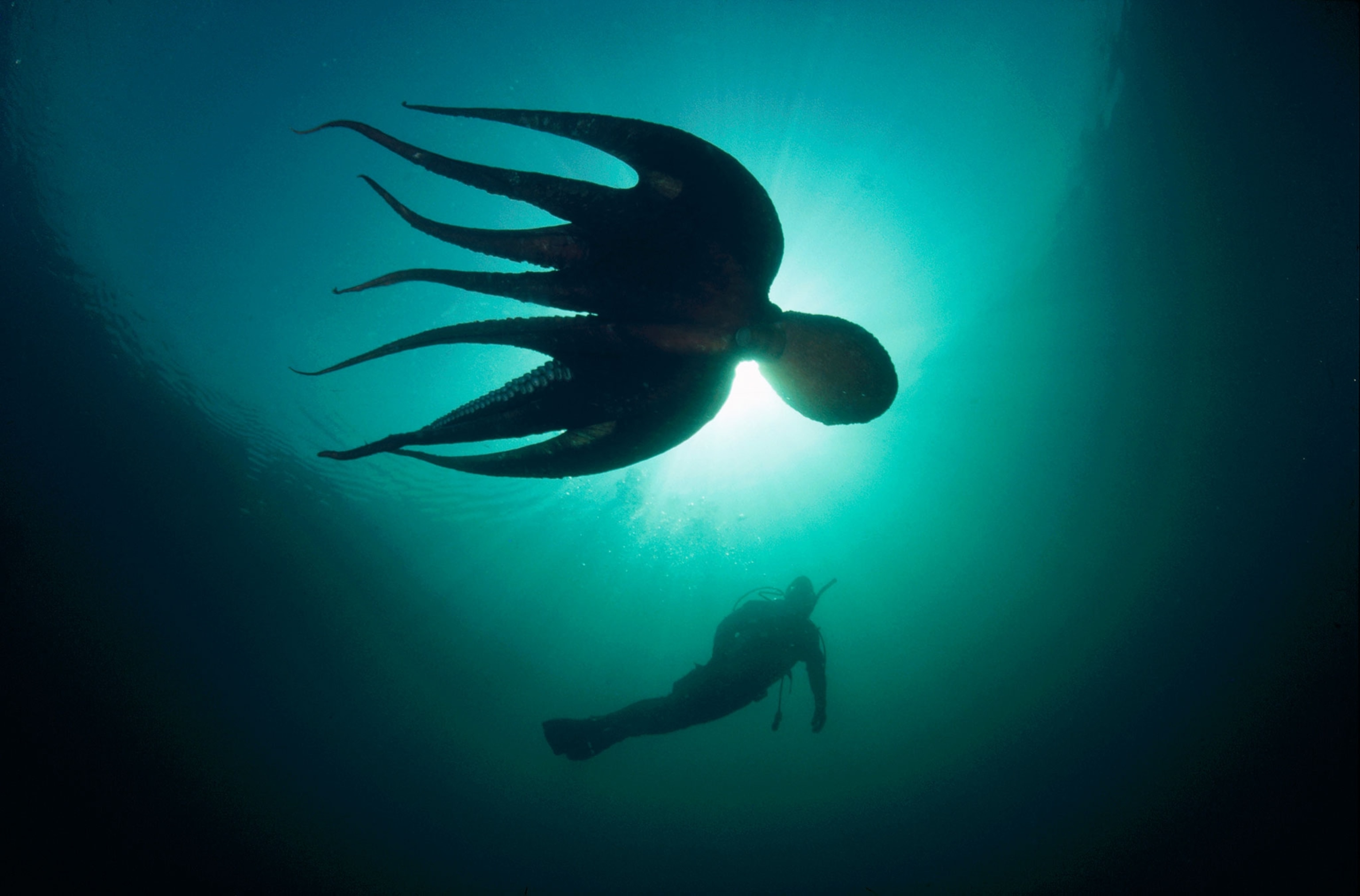
Losing her best friend at this very young age was devastating, but she came to the aquarium that week anyway. Bereft she stood over Octavia’s tank and Octavia came up from the bottom and hugged her! It was incredible.
Anna believed that Octavia could sense that she needed a hug. Octopuses can taste what’s on the surface of our skin so it’s very possible that Octavia could taste Anna’s pain and sorrow. All I know is that Octavia seemed to know what Anna needed. Who to get a better hug from, than someone with eight arms and three hearts?
You describe an extraordinary mating at the Seattle Aquarium. Do octopuses really feel love?
Boy, I don’t know [Laughs] but it was certainly erotic. I don’t know what they felt for each other. They had only just met, like what kids today call “hooking up”. Except it’s not like us at all.
Octopuses have sex at the end of their lives. We have multiple chances to mate. Most octopus species only get an opportunity to mate at the end of their lives, and for the females, laying the eggs and guarding the eggs, it's the last thing they ever have to do.
There are two basic ways that we know of that octopuses mate. They mate like a lot of mammals do, with the male on top of the female…
The missionary position….
Well, missionary is when you’re face to face. And it’s hard to tell where an octopus’ face is because their mouths are in their armpits! [Laughs]
Actually, the males take their hectocotylized arm, the specialized arm the male uses to place the spermatophore inside the female’s mantle opening. Aristotle described it as putting his penis in her nostril, which doesn’t sound very romantic at all [Laughs]!
Even less romantic is “distance mating”. The ultimate in safe sex! You can not even leave your den and still mate with another octopus.
The mating at the Seattle Aquarium was different because both animals were clearly interested in each other, and the female whooshed into the male’s arms. They enveloped each other and turned colors with their emotions. There was a lot of wrapping around and afterward they turned white, which is the color of a relaxed octopus and they lay literally in each other’s arms, holding each other, for hours. It was lovely.
What about the soul–does an octopus have one?
I think all animals have souls. I feel certain that if we have souls, octopuses have souls, too. If you grant something a soul, it demands a certain level of sacredness. Look around us. The world is holy. It is full of souls.